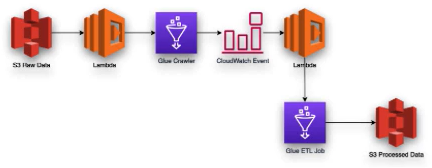AWS Lambda
Lambda is serverless, e.g. run code without provising or managing servers.
Usage patterns
- Execute code in response to triggers such as changes in data, changes in system state, or actions by users
- Real-time File Processing and stream
- Process AWS Events
- Replace Cron
- ETL

Cost
- Charged by the number of requests to functions and code execution time
- $0.20 per 1 million requests
- Code execution $0.00001667 for every GB-second used
Performance
- Process events within milliseconds
- Latency higher for cold-start
Retain a function instance and reuse it to serve subsequent requests, versus creating new copy
- Uses replication and redundancy for high availability of the service and the functions it operates
Durability and availability
- No maintenance windows or scheduled downtime
- On failure, Lambda synchronoously responds with an exception
- Asynchronous functions are retried at least 3 times

Scalability and elasticity
- Scales automatically with no limits with dynamic capacity allocation
Interfaces
- Trigger Lambda from AWS servies events
- Respond to CloudTrail audit log entries as events
Anti-patterns
- Long running applications: 900 sec runtime
- Dynamic websites
- Stateful applications: must be stateless